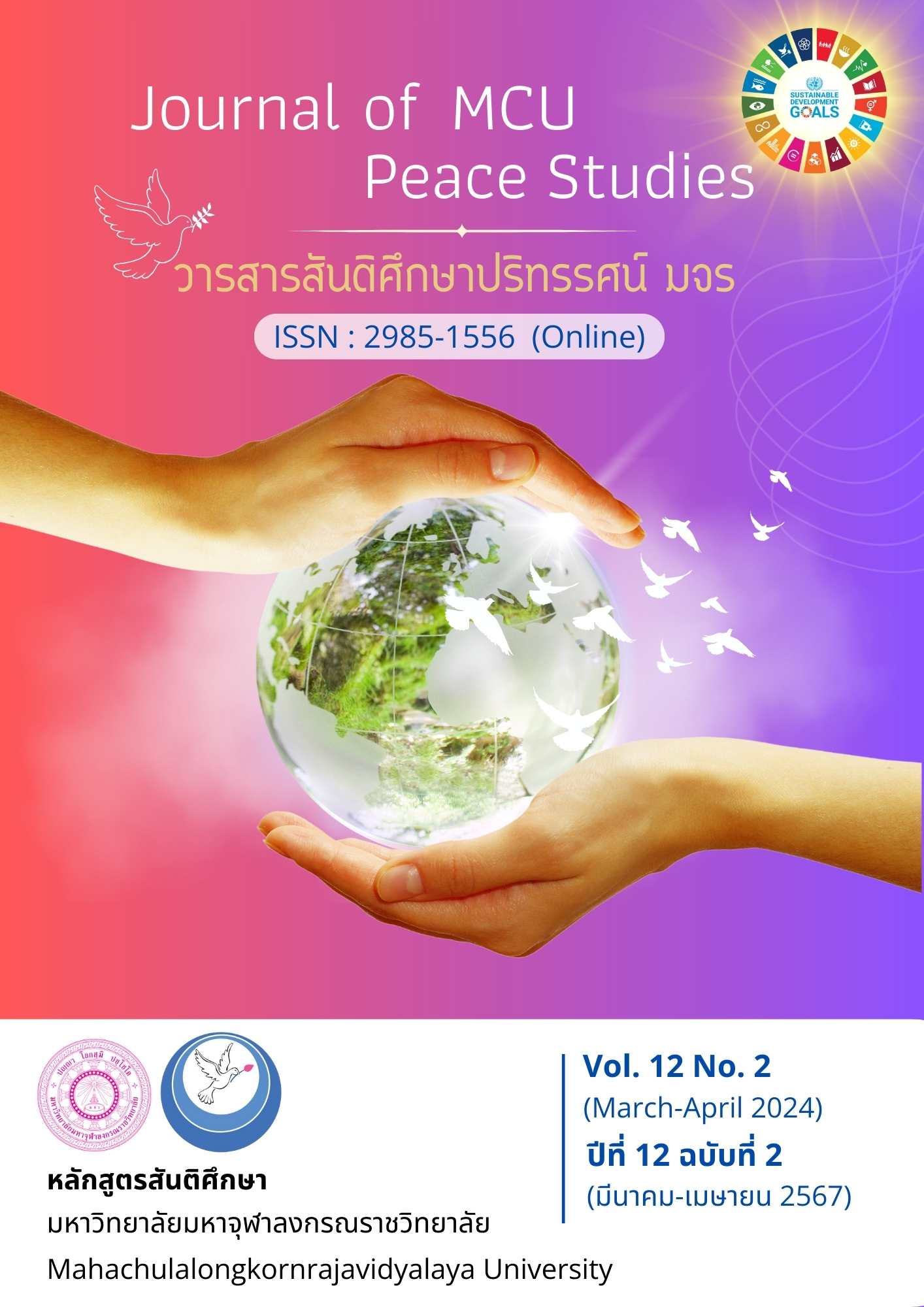Procedural System and Fact-finding in Election Cases
Main Article Content
Abstract
This research article aims to 1. study the basic principles of the procedural system and fact-finding system, 2. study the procedural system and fact-finding in election cases. and 3. propose guidelines for the development of the procedural system and fact-finding in election cases to be suitable for Thailand. By using documentary research together with in-depth interviews, using a structured interview form the data obtained from the study and the data from the interviews were analyzed according to the scope of the research and presented a summary of the research.
The research found that; after announcing the election results when there is a petition objecting to an election, the Election Commission must investigate in accordance with relevant regulations and laws. In the case where the Election Commission revokes the right to vote or orders a new election must submit a petition to the Appeal Court for consideration and decision. The court will use the regulations of the general meeting of the Supreme Court as the basis for considering and adjudicating election cases. As for any procedure not specifically prescribed by the rules of the general meeting of the Supreme Court, the court will apply the provisions in the Civil Procedure Act. However, in the court proceedings, it was done openly in front of the parties, causing the witnesses in the case to be afraid so they did not come to testify in court or come to court but refuse to testify or return the testimony. The Court of Appeal to dismiss the petitioner's petition.
Article Details

This work is licensed under a Creative Commons Attribution-NonCommercial-NoDerivatives 4.0 International License.
Views and opinions expressed in the articles published by The Journal of MCU Peace Studies, are of responsibility by such authors but not the editors and do not necessarily reflect those of the editors.
References
Aunmai, Ph. (2007). Adjudicating Cases in Absentia: Studying Exceptions and Issues of Trial in Absent. (Master’s Thesis). Thammasat University. Bangkok.
Bunrat, N. (2016). The Issues Concerning the Evaluation Methods of Auditing Organizations and the Adjudication of Disputes in Local Election Cases. (Master’s Thesis). National Institute of Development Administration. Bangkok.
Chittakasem, N. (2008). The Role of Associate Judge in the Central Intellectual Property and International Trade Court: A Particular Study in Criminal Case Adjudication. (Master’s Thesis). Thammasat University. Bangkok.
Chutiwong, Kh. (2001). The Legal Description of Witness Characteristics. Bangkok: Nitibannakarn.
Kongtrakul, K. (2003). The Inquisitorial System in the Thai Administrative Court Procedure Law. (Master’s Thesis). Thammasat University. Bangkok.
Neville, L. B., & John, S. B. (1998). French Administrative Law. (5th ed.) Oxford: Clarendon.
Phakeerat, W. (2003). Procedure of the Constitutional Court Comparative Study of Cases of Foreign Constitutional Courts and the Thai Constitutional Court. Bangkok: Winyuchon Publication House.
Phakeerat, W. (2011). Administrative Law, General Section. Bangkok: Nitirat.
Pinweera, W. (2007). The Role of Judges in Criminal Trial. (Master’s Thesis). Thammasat University. Bangkok.
Pongsuwan, P. (2002). General Principles of Law Concerning the Adjudication Methods of Administrative Cases. Administrative Courts Journal¬¬, 2(2), 95-143.
Rathamarit, U. (1997). Public Trial: Principles and Exceptions under French Criminal Procedure Law. Thammasat Law Journal, 20(1), 68-69.
Soontronviphat, V. (2015). The Problem in Investigation System to Use with Administrative Case in the Location of Intellectual Property and International Trade Court. (Master’s Thesis). National Institute of Development Administration. Bangkok.


